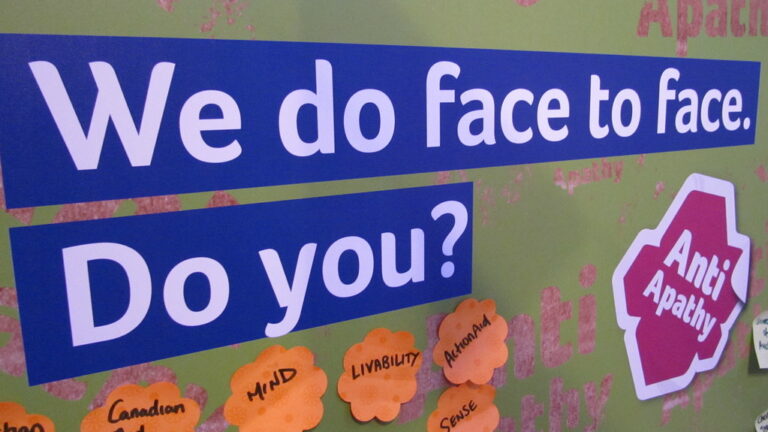Chugging, Irresponsible Research and Old-school Nepotism

Wow! A veritable whirlwind of accusation and counter-punching has blown up over the last week or so following the publication of Intelligent Giving’s research on face-to-face fundraising and the subsequent media coverage recommending that the public should avoid all chuggers.
Whilst I don’t intend to add to the virtual column inches already devoted to the mechanics of face-to-face fundraising and the alleged irresponsibility of Intelligent Giving, this story has raised a few issues of interest for me.
First, face-to-face activity is pretty much here to stay; the PFRA forecast that nearly a quarter of a billion pounds will be raised this way in the coming few years and I’m sure most charities would like a share. However, let’s take a reality check.
Advertisement
According to many of articles and comments I’ve seen, the practitioners are all squeaky clean and well-versed in the process and procedure governing their activities. Wrong. Like all walks of life, a few rotten apples can have the highest impact in terms of public perception. Just the other day in Redhill, I felt compelled to step to the defence of a busy young mother who was desperately trying to steer her shopping-laden pushchair around a street fundraiser. He would not take no for an answer and repeatedly blocked her path until I mentioned that his profession was actually regulated and threatened to take his ID to complain. At this, he swore at me (quite imaginatively, to be fair) and stalked off. I’m sure this guy doesn’t represent the majority but let’s retain some perspective – we’re human and it will happen.
Secondly, the debate has very quickly descended into a personal battle between the young, relatively inexperienced team at Intelligent Giving and the long-time servants of ‘the sector’. In principle, there is much truth in many aspects from both sides of the argument but there does appear to be a tangible feeling of ‘we know best’ from the latter.
I have seen well-articulated arguments suggesting that it will be Intelligent Giving’s fault if the entire face-to-face channel dies and charities collapse as a result. A precedent of the 2003 Christmas appeals in Scotland has been cited which involved experienced fundraisers saving the day (a la knights in shining armour) after “irresponsible research and journalism” caused “everyone to stop donating altogether”. I’m no genius, but I don’t actually live my life by what the pages of tabloid newspapers purport to be earth-shattering news. The current debate has been picked up by The Sun and again, those experienced heads are leaping into the fray proclaiming that a lack of experience and understanding will lead to job losses and disaster for many.
Hang on just a minute.
I’m a genuine neutral in this whole discussion but if experienced charity people believe that this one piece of media campaigning will spell disaster, then I humbly suggest that we are probably missing some other important factors in our search for a scapegoat. How about rising unemployment, global recession, increasing pressure on personal disposable income and increased choice in where to donate it? Surely, our thinking and planning to cope with these factors should be absorbing our energies? (that said, venting one’s spleen is sometimes very therapeutic!)
To meet these challenges will take the combined efforts of those with experience as well as those with new ideas from other walks of life (as daft as they might sound). Which segways nicely into my last observation based on this now very public debate.
Practically every comment I’ve read regarding the Intelligent Giving research mentions the age and lack of charity sector experience of the key players. Over the last 15 years, I have worked with small businesses, major international corporations, local and national charities and can honestly reflect that those within the charity sector do place significant barriers to entry comparable to any seen in the commercial world.
I’ve also conducted a (limited) straw poll amongst some contacts in the recruitment sector and they unanimously reported that it is hugely difficult to place all but the most junior roles for charity clients because of the stipulation that candidates must have pretty much done the same job previously! This seems to be the reality, regardless of how open-minded the recruitment brief is.
So how do we encourage people to gain the experience that seems to be a prerequisite of being allowed an opinion if we don’t let them gain it? I wrote a blog on this site several weeks ago which talked about encouraging a little revolution in the way we think and I can’t think of a better reason to do so than to meet the challenges above.
Kevin Baughen is founder of Bottom Line Ideas, is a speaker for Cancer Research UK and a long-time advocate of blurring the lines between best practice across the charity and commercial worlds.



